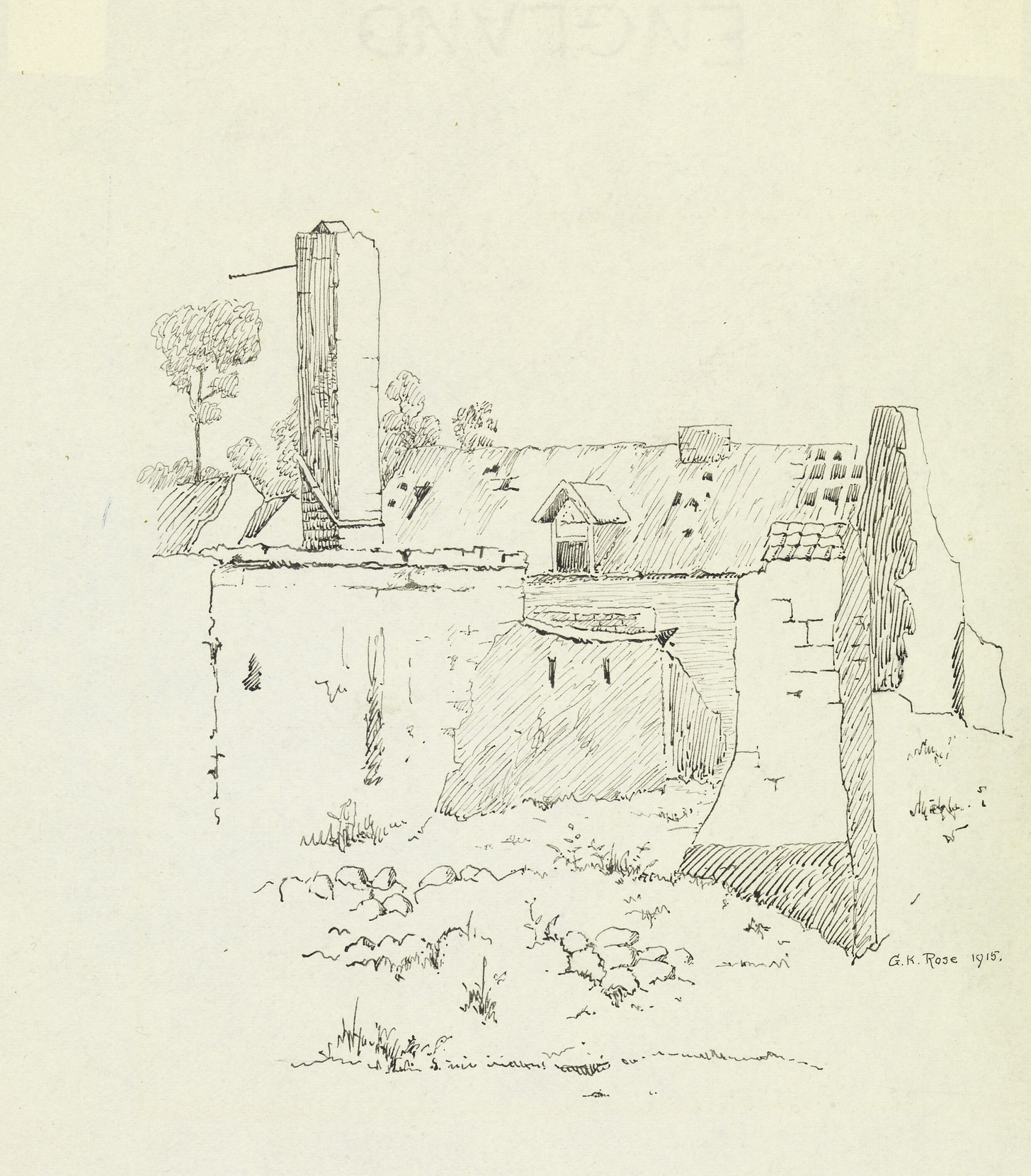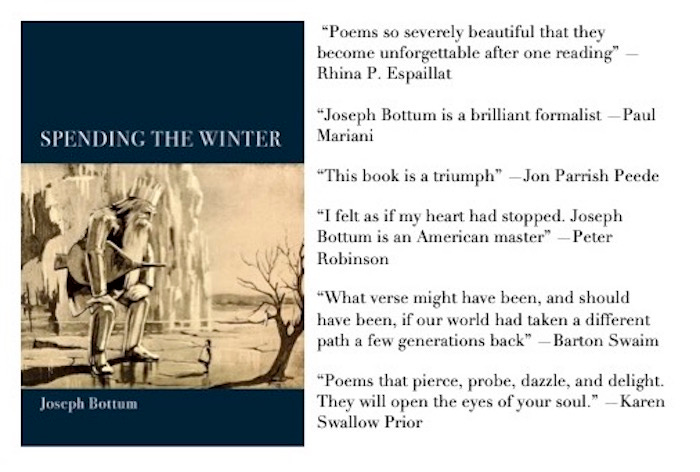
Sonnet XVI (“Under the mountain”)
by Frederick Goddard Tuckerman
Under the mountain, as when first I knew Its low black roof, and chimney creeper-twined, The red house stands; and yet my footsteps find Vague in the walks, waste balm and feverfew. But they are gone; no soft-eyed sisters trip Across the porch or lintels; where, behind, The mother sat, — sat knitting with pursed lip. The house stands vacant in its green recess, Absent of beauty as a broken heart; The wild rain enters; and the sunset wind Sighs in the chambers of their loveliness, Or shakes the pane; and in the silent noons, The glass falls from the window, part by part, And ringeth in the grassy stones. ═══════════════════════
During his lifetime, the American poet Frederick Goddard Tuckerman (1821–1873) was read by practically no one. Of the many writers to whom he sent his Poems, published in 1860 (and so obscure that it doesn’t seem to exist even at Project Gutenberg), only Nathaniel Hawthorne bothered to respond with any encouragement or understanding of Tuckerman’s art. His later poems languished in obscurity into the next century.
As the contemporary poet and critic Jason Guriel has written, Tuckerman was “too weird to be appreciated by his own milieu, the United States of the nineteenth century, and not weird enough to distinguish him for many of his later readers.” Yvor Winters championed Tuckerman’s “The Cricket” as “one of the finest lyrics in English of the nineteenth century.” Yet even Winters tempered his praise by also dismissing Tuckerman as a Romantic and therefore a fool. Tuckerman’s cardinal sin, which we might discern in Today’s Poem? “He dismisses feeling from motive as far as possible.” Winters explained this assertion further, with reference to another, similar poem of Tuckerman’s:
The beautifully executed sonnet beginning ‘An upper chamber in a darkened house’ is a perfect example of the procedure: a man is imagined in a tragic, but impenetrable, setting, to serve as the symbol of a feeling with which he has no connection and the source of which we are not given. Tuckerman is much like Hawthorne of the last romances, except that he writes better.
Well, okay. The swipe at Hawthorne aside, Winters has a point. It’s true that we are never told the backstory in Today’s Poem, Tuckerman’s innovative “Sonnet XVI,” which begins “Under the mountain, as when first I knew.” We don’t know how or why the speaker has returned to an abandoned house, with its darkling atmosphere of ghosts (contrast this scenario with that of John Greenleaf Whittier’s “Telling the Bees,” for example).
We don’t know why the house is empty. We don’t know what’s happened to the “soft-eyed sisters” — whose soft-eyed sisters? — or why the mother pursed her lips as she sewed. If that lip-pursing was meant as a premonition of some catastrophe, we don’t know what catastrophe, or whether she was right. We’re simply plunged into this scene with its intensity of feeling: the happier, though not untroubled, memory juxtaposed with the present desolation. And either this bothers us, or it doesn’t.
Meanwhile, the formal irregularity (for which some of Tuckerman’s few literary readers in his own time chided him) contributes to the poem’s drama. The interlaced rhymes, with their rhyme scheme of abbacbcdebdfef, depart from the standard abbaabbacdecde model of the Petrarchan sonnet, and so seem to echo the intrusion of the wild elements into the house’s old order. Even the final line, a tetrameter change from the sonnet’s iambic pentameter, rings the poem’s closure as clearly as window glass dropping and breaking on stone.






I had not come across this poem, or poet, before, so thank you for bringing it and him to my attention, Sally. A very striking sonnet. I suppose the ur-text here, with which Tuckerman is surely in dialogue, is Wordsworth's "The Ruined Cottage", a poem he worked on in various forms throughout his life, and which found its final shape in "The Excursion". That, though, does give us the cottage's backstory, and explains how it came to be ruined. Tuckerman, by not doing so, adds a mysterious intensity to his piece. https://medium.com/adams-notebook/wordsworths-excursion-2-the-ruins-of-book-1-1d9df4d6e505
I am no poet and have no understanding of poetic properties, but this is exquisite. I have read it several times now and will print it and stick it to the side of a bookshelf with others that have so touched me and I might try to memorise.